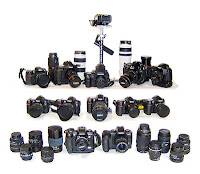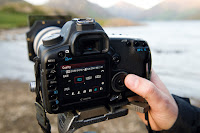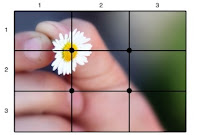Digital photography and its fair share of technicalities
Photography is an art. If your photography school intends to impart the techniques behind capturing the best photograph, then here are a few suggestions to begin with. Right from choosing the best cameras to suit the requirement or even improving the photographic skills, you must start with digital photography. Digital photography is a form of photography that make use of an array of electronic photodetectors to seize images focused by the lens as opposite to an exposure on photographic film.
All you need to know about digital photography:
Equipment:
There are a few important considerations to make before you choose a digital camera. Your camera should be comfortable enough to carry it in all the situations, whenever you want to take photographs.
Types of camera:
Compact cameras: with compact cameras you can get image quality and creative flexibility with a certain degree of control over the camera settings for shooting.
DSLRs: DSLRs (Digital single lens Reflex) enable you to build up a pool of interchangeable lenses to create the best quality photography in any given situation. For quality and creative control, the DSLRs are indomitable.
Bridge cameras: it offers a built-in lens with a wide zoom range. It provides some level of control over the exposure setting .
The features of your camera:
The technical features should be checked before you buy a digital camera. Take a look at it:
The zoom range: zoom determines how much of a scene will be captured in your photograph. Of course the actual size depends on the focal length of the camera lens. This is normally expressed in millimetres. The longer the focal length, the more brilliant you can see objects.
Megapixel: nowadays, the majority of the cameras offers more than 10MP. Higher megapixel means you can choose a small portion of the image and enlarge the same. You can even capture the details of a photograph in a much better way.
Image stabilisation: stabilisation method includes moving the lens to project a steady image on the sensor and enables you to take multiple shots by only keeping the sharpest.
Shooting modes and focus range:
The cameras which offer a pre-defined scene modes, will automatically select suitable settings for the kind of scene you choose. A few cameras also have a mode in which it itself analyse the scene and select a mode for you. Scene modes can be a swift way to get the camera ready to take the shot you desire. For focus range, most of the cameras tend to focus on objects that are far away from the horizon.
The digital photographic technique:
Shooting hand held:
While you learn to shoot photographs, it is important to hold the camera firmly. Make sure not to hold it so firmly that it shakes. Use both the hands, with one finger on the shutter button and the giving support to prevent the camera from rotating. While using a DSLR or a bridge camera, keep the left hand beneath the body of the camera. If you use a compact camera, it is better to hold it with one hand on each side.
Do not stab on the shutter button instead gently press the shutter release button. You can also find that most of the cameras also have the half pressing button option. This indicates the camera to focus and calculate the exposure setting it requires. There will also be an option (such as a beep) for confirmation when the work has been done.
Composition:
The composition of a photograph symbolizes the general layout of the different element within the rectangular frame. The first principle in the composition is the rule of thirds following this principle will allow you to create photos with the right proportions. Another important principle is the flow.Here you should look at the main subjects, while looking at a photograph and should also explore the rest of the picture without being run out of the frame. Various actions can be exploited to achieve this principle.The most classic illustration being a path, road or river that winds its way from the forefront towards a stimulating subject at one of the 1/3 points with a perspective line guiding the eye to a subordinate subject on the other side of the photo.
Lighting:
Generally the sunlight in the early morning or evening is ideal for producing pleasing photographs. When the sun is lower in the sky, it creates less prominent shadows below the eyes and the nose and also a pleasant colour to add to your photos. If you are getting shadows or if any shaded area is too dark, you can make use of reflective materials to spring up some light into those areas. Camera flash can also be used to fill the gap in the shaded areas with light. It is necessary to use a flash especially when you are shooting indoors. Lighting is one the crucial factor, without which your creativity in photography will not be reflected properly.
There are endless knowledge to acquire in photography. The more you learn, the better is your skills in producing the most creative picture.
Content Copyrighted To TechnoWorldNews.com
Latest posts by Techno World News (see all)
- 7 Key Web Design Principles To Create Impactful Web Experiences - June 20, 2024
- Why Your Small Business Needs SEO To Succeed - June 1, 2024
- Ultimate Guide to How Encoders Work: Types & Applications - June 1, 2024
No Comments











